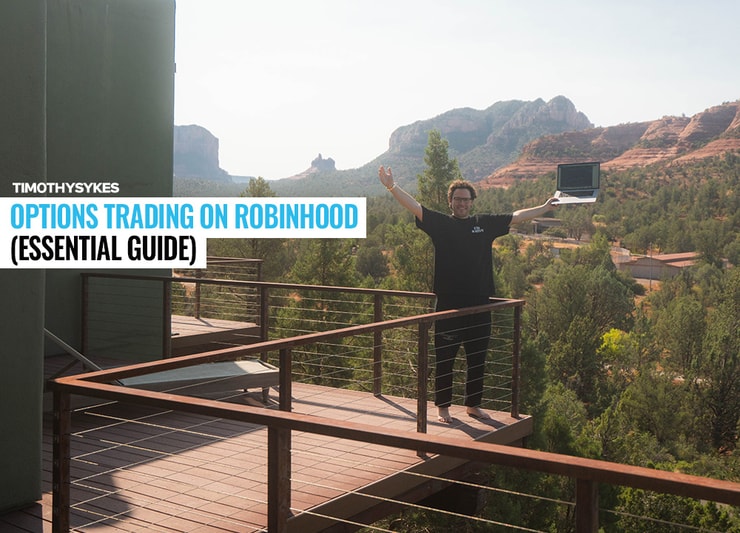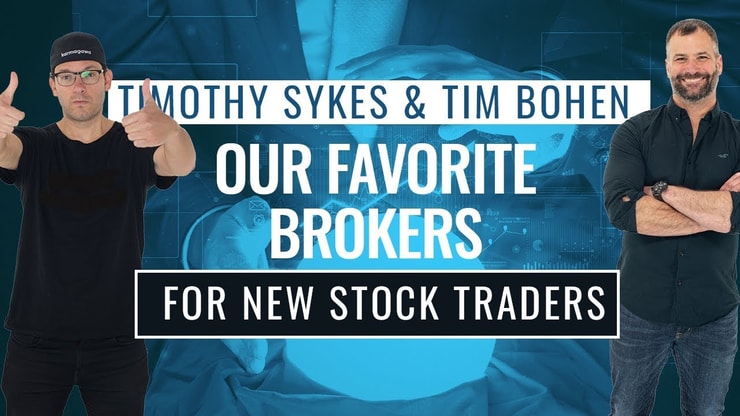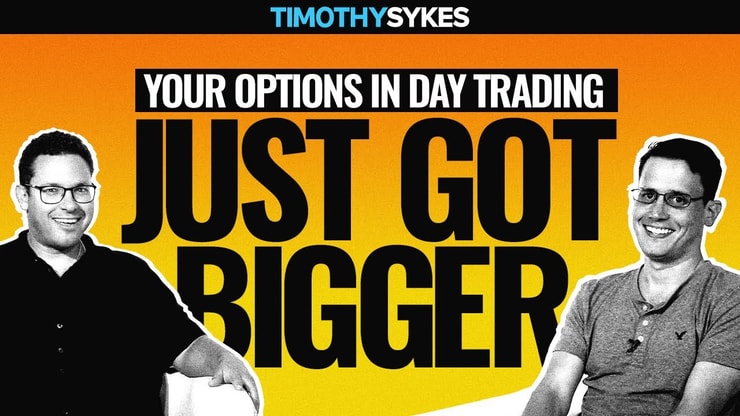Options trading on Robinhood is one of the most popular strategies on the app. It wouldn’t be a stretch to say that many new options traders adopted the strategy because of Robinhood’s user-friendly interface.
Robinhood is a decent choice if you’re new to options trading. You don’t have to worry about contract fees or minimum deposits. Plus, an account at Robinhood Financial LLC comes with an easy-to-use app with a user-friendly interface.
People like trading options on Robinhood Financial to get around its short-selling ban. But is Robinhood Financial LLC a good place to trade options? Read on to learn more about trading options on Robinhood!
Table of Contents
- 1 Trading Options on Robinhood
- 2 Can You Trade Options on Robinhood?
- 3 Pros of Options Trading on Robinhood
- 4 Cons of Options Trading on Robinhood
- 5 Option Trading Levels on Robinhood
- 6 How to Get Started Trading Options On Robinhood
- 7 Factors to Consider When Choosing an Option on Robinhood
- 8 Natural Price vs Mark Price on Robinhood
- 9 Good-Til-Canceled (GTC) vs Good-For-Day (GFD) Orders on Robinhood
- 10 Options Trading Strategies on Robinhood
- 11 Day Trading on Robinhood
Trading Options on Robinhood

The most important consideration when choosing a broker is whether it fits your needs. If you have many needs, it’s fine to use multiple brokers. There’s no rule that says you can’t deploy different options strategies on different brokers.
The best thing about Robinhood Financial is its ease of use and lack of minimum deposit. But it doesn’t have a trading simulator, meaning you need another app for paper trading. Another knock against Robinhood is its reputation for service disruptions.
But the main dealbreaker for me is its OTC stock blocks. I like brokers that don’t get in my way, so Robinhood isn’t right for me.
My choice of broker isn’t the point. Robinhood can work for you, as long as it fits your strategy.
Can You Trade Options on Robinhood?
You can trade options on Robinhood as long as you meet its requirements. If you don’t meet them, the app will let you know where you fell short, and let you apply again.
Online brokerages don’t approve all customers for options trading to protect newer traders. Inexperienced traders often blow up their accounts and lose all their money in the process.
Robinhood has several options trading approval levels, like other brokers. The logic here is that you can take additional risks as you gain more trading experience.
New to options? Read up here on the basics of options trading.
Pros of Options Trading on Robinhood
What makes Robinhood such a popular platform for options traders? Here are three of the top reasons:
User-Friendly Interface
One of Robinhood’s greatest advantages is its user-friendliness. The interface is simple, easy to use, and gives you everything you need at a glance. Robinhood became one of the industry standards for user-friendly brokerage apps.
Totally-Free Options Trades
Robinhood offers commission-free and no-contract-fee options transactions. This means you don’t need to pay anything except regulatory fees.
More Breaking News
- Ichor Holdings Upgrade Boosts Stock Amid Strong Earnings
- GGB Stock Hovers as Market Reactions Vary Amid Market Speculation
- ALAB Stock Climbs Amid Strategic Moves and Strong Financial Indicators
- TRX Gold Shines with Strong Q1 Earnings and Raised Price Targets
Intuitive Options Trading
Robinhood makes options trading very easy.
Cons of Options Trading on Robinhood

On the flip side, there are some cons of trading options on Robinhood. Here are three of them:
Weak Trading Platform
Robinhood doesn’t have a power platform. Trading is a battlefield, and you don’t want to be ill-equipped to face off against other traders.
If you’re in the market for a better trading platform, try StocksToTrade. It’s my favorite trading platform (and the one I helped design). It also integrates with Robinhood brokerage accounts.
Give StocksToTrade a try today — a 14-day trial is only $7!
Poor Executions
Robinhood has repeatedly been dinged for sub-optimal executions — by FINRA in 2019 and the SEC in 2020.
Lack of Training Resources
Robinhood might be beginner-friendly, but it doesn’t have comprehensive educational materials.
The articles featured on the app are pretty good, but it lacks a paper trading platform and educational videos for beginners. This means you might need to look for basic options trading knowledge elsewhere.
Option Trading Levels on Robinhood
Robinhood has tiered trading levels based on the user’s experience. The higher your level, the more options trading features you can access.
Here are the three levels:
Level 1
This level doesn’t give you access to the options market. It only allows you to trade stocks, ETFs, and crypto.
Level 2
New options traders start here. As a Level 2 trader, you can access basic options strategies like:
- Long calls
- Covered calls
- Long puts
- Short puts
Level 2 traders can request an upgrade to Level 3 at any time (preferably after having some sustained Level 2 success).
Level 3 approval usually takes longer because it requires a manual review.
Level 3
Level 3 is the highest options trading clearance on Robinhood. Level 3 traders can access complex options strategies like:
- Call credit spreads
- Call debit spreads
- Put credit spreads
- Put debit spreads
- Iron condors
- Iron butterflies
- Calendar spreads
Read my guide to learn more about how options trading works.
How to Get Started Trading Options On Robinhood
Here’s a quick step-by-step guide to trading options on the Robinhood app. Before following this guide, ensure you have Level 2 options clearance.
- Choose the Search option icon on your homepage.
- Search and pick the asset.
- Press Trade on the asset’s details page.
- Click Trade Options.
Factors to Consider When Choosing an Option on Robinhood

Options trading can lead to big gains… or you can blow your account up. Don’t trade randomly! Test out different options strategies and choose the ones that suit you most.
Here are some essential considerations:
Expiration Date
The sooner the contract’s expiration date, the shorter the time you’ll have to exercise it.
Options with a longer period of time till expiration are usually more valuable. An options contract will experience time decay as its expiration date nears.
Strike Prices
A strike price or exercise price is the price listed on the options contract. You can execute the options contract when the current stock price matches or exceeds the strike price.
An options contract is more valuable if it’s “in the money” before expiration. Being in the money means you can exercise the contract and make a profit.
On call options, being in the money means the strike price is lower than the current price. On put options, being in the money means the strike price is higher than the current price.
Your contract is worthless if it’s out of the money at expiration. However, it will still be worth something before its expiration date.
The Options Premium
The options premium is the price you pay to buy an option. More valuable contracts generally have higher premiums.
Break-Even Point
The contract’s break-even point is the target stock price that allows you to break even. If you exercise your contract at that point, you’ll break even on your trade.
Break-Even Percentage
This percentage represents how much the asset price needs to change to reach your break-even point.
Chance of Profit Percentage
This percentage represents the probability you’ll make money from this option. This percentage is an estimate — it doesn’t guarantee results.
Natural Price vs Mark Price on Robinhood
Trading platforms use two options pricing models:
- Natural price: The natural price differs depending on your role. Option buyers see the ask price, and option buyers see the bid price. The ask price is the lowest price traders will sell the underlying asset for, while the bid price is the highest price traders will buy it for.
- Mark price: The mark price represents the midpoint between the ask and bid price.
Robinhood displays the contract’s natural price by default, but you can view the mark price by changing the app’s settings.
Good-Til-Canceled (GTC) vs Good-For-Day (GFD) Orders on Robinhood

I want my orders executed at the price point and time I specify. I’d rather have an order go unfulfilled than have it be filled at the wrong time.
Putting in GTC orders and not watching your stock position is a bad idea. It means you’re leaving everything up to other traders. Those traders do not want you to be profitable.
Market conditions can change anytime. You can’t control the market, but you can control how you react to its changes. That’s why you have to be watching — not paying attention to the chart is the best way for traders to lose money.
GFD orders are somewhat better, but the principle is the same: they’re both set-and-forget orders. Anything can happen between when you set them and the market closing — especially when you trade volatile stocks like I do.
Options Trading Strategies on Robinhood
The best brokerage firm for you is the one that fits your strategy. Millions of people use Robinhood, and it can work for you if it suits your needs. I have my reservations, but Robinhood has no learning curve, which makes it appeal to newer traders.
Just keep in mind that being easy to use doesn’t mean it’s easy to make money. Trading isn’t easy, and most new traders lose regardless of the app they use. You need to learn from every trade and study hard to become a self-sufficient trader.
Day Trading on Robinhood
Day trading options on Robinhood works for millions of traders. If you’re one of them, I suggest you go into this partnership with your eyes open.
It helps to have a guide on your journey to self-sufficient trading. If you’re searching for a mentorship program, check out my former student Mark Croock’s Evolved Trader. He’s taken my penny stock strategies and applied them to options trading — making $3.9 million in career earnings in the process!
Here’s a sneak peek of Mark’s curriculum:
Sign up for the Evolved Trader program today!
Do you use Robinhood to trade options? Share your experiences in the comments below!





Leave a reply